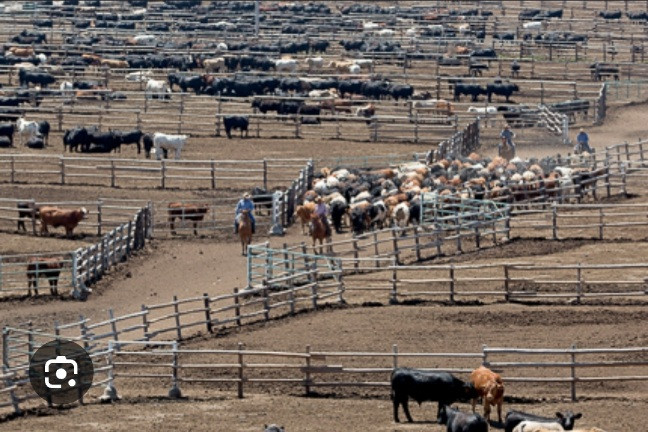Regenerative vs Conventional
posted on
May 15, 2025
Every year we hear from folks that are on the early stages of their food journey. Something changed in their health or they heard about regenerative agriculture on a podcast or youtube. Our immediate reaction is “Welcome to the movement”. We should consume meat, we’re omnivores and can digest plants and animal protein but not all meat is raised with the land in mind, the animals welfare, and the impact on the community. In the current model, all three are costs paid in order to have thawed meat in the grocery store on demand. It’s not the cow, it’s the how.
Through regenerative agriculture farming we focus on movements that mimic nature. The animals are rotated on the pasture (cattle and chickens) while the hogs are in the woods. This allows the animals to naturally, effortlessly and efficiently distribute their manure. They also disturb the ground. While foraging, this stirs up the seed bank and the process of regeneration is ignited. Under ideal circumstances (like this spring), we get soft gentle rain showers that dilute the manure, helping it penetrate into the soil, hence feeding the soil biology.

The relationship between animals, plants and microorganisms needs to be in harmony to be mutually beneficial. We manage our livestock by carefully observing our land. The microorganisms can break down the manure but it needs time to recover. During the recovery stage it provides nutrients to the plants. Manure=fertilizer. Fertilizer feeds the plants. If you have too much fertilizer the land becomes toxic. Imagine a concentrated animal factory operation (aka CAFO) with a high population of animals producing vast amounts of manure in a small area of land, that’s a toxic recipe with no plants and not in balance.

Protein is essential and how it was raised makes a big difference. Our animals have lots of space, they breathe fresh air, feel the sunshine and rainfall on their backs, while relishing on a salad bar full of tasty plants and forage. The How looks, feels and smells are very different on our farm. We invite you to attend one of our farm tours this year and experience regenerative agriculture first hand.

As you navigate all the latest food trends and labels. We encourage you to take a personal interest in developing relationships directly with farmers/ranchers/producers. Not all meat is raised properly and labels don’t answer all your questions. Visit the farm, learn about the processes and support a local family farm.



